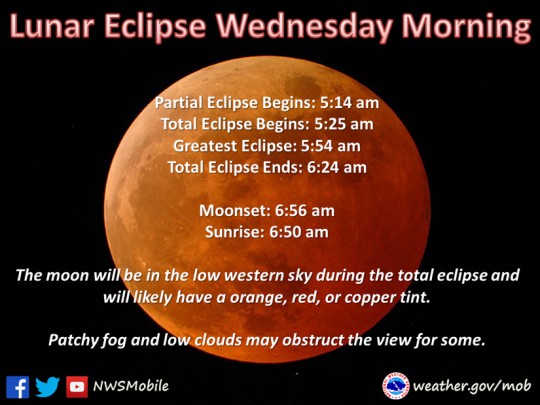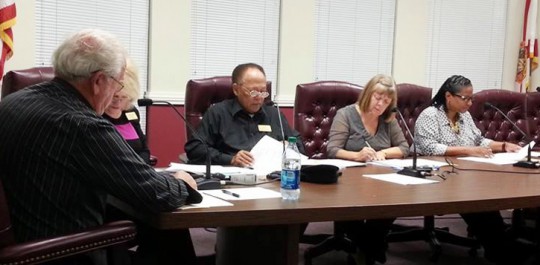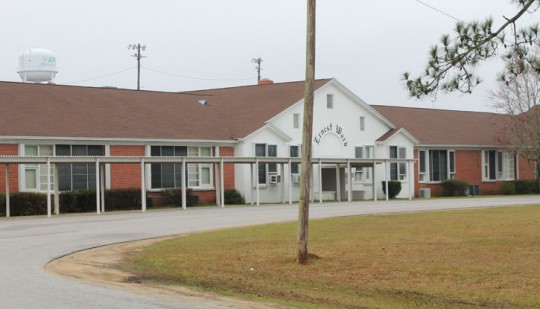Ann Hardy Sims
October 8, 2014
Mrs. Ann Hardy Sims, 72, passed away on Tuesday, October 7, 2014, in Pensacola.
Mrs. Sims was a native of Bratt and a resident of Century for most of her life. Mrs. Sims was a loving wife, beloved mother, precious granny and generous friend to all. She was known by her big heart. She was member of the Century First Baptist Church. Her parents, Jim and Vera Hardy and brother, Buddy Hardy precede her in death.
Survivors include her husband of 44 years, Ronnie Sims of Century; one son, Randy Sims of Century; three daughters, Ronda (Hutch) Hutchison of Pensacola, Paula (Greg) Fabbro of Pensacola and Donna (Michael) Ishee of Pace; and seven grandchildren, Hannah Fabbro, Colton Sims, Dylan Sims, Hayden Sims, Madeleine Hutchison and Emily and Caleb Ishee.
Funeral services will be Friday, October 10, 2014, at 2 p.m. at the Petty-Eastside Chapel Funeral Home with Father Ron Browning officiating.
Burial will follow at the Godwin Cemetery.
Visitation will be Thursday, October 9, 2014, from 6 p.m. until 9 p.m. at the Petty-Eastside Chapel Funeral Home.
Pallbearers will be Randy Sims, Colton Sims, Dylan Sims, Hayden Sims, Caleb Sims, Greg Fabbro, Hutch Hutchison, Michael Ishee and Greg “Eggy” Therrell.
Petty-Eastside Chapel Funeral Homes is in charge of all arrangements.
Check Out A Lunar Eclipse Early Tomorrow Morning
October 7, 2014
If you are up Wednesday morning, you will have a chance to see a lunar eclipse. However, patchy fog and low clouds may obstruct the view for some.
Here is the information you need to see the eclipse, courtesy of the National Weather Service in Mobile:
(Click to enlarge.)
Deputy Injured In Early Morning Traffic Crash
October 7, 2014
An Escambia County deputy was injured in an early Tuesday morning traffic crash.
According to the Florida Highway Patrol, 32-year old Michael J. Wohlers was traveling westbound on West Jackson Street in marked police cruiser while responding to a disturbance call when he drove through the intersection, into a ditch, and into trees and shrubs.
Wohlers was transported to a local hospital with minor injuries.
No charges were filed in the crash by the FHP.
Man Jailed After Molino Carjacking, FHP Chase Into Cantonment
October 7, 2014
A carjacking at a Molino bar landed an Escambia County man behind bars.
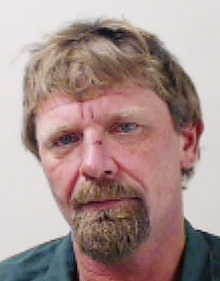 William Madison Arrant, 41, was charged with carjacking, grand theft of a motor vehicle, fleeing or eluding police and driving with a suspended license after the incident Saturday night at Louie’s Bar on Molino Road.
William Madison Arrant, 41, was charged with carjacking, grand theft of a motor vehicle, fleeing or eluding police and driving with a suspended license after the incident Saturday night at Louie’s Bar on Molino Road.
The victim, described as Arrant’s ex-girlfriend, told deputies that she and Arrant were in her Jeep outside the bar when they got into an argument. She reported that Arrant physically twisted her arm and took her keys. She reported the vehicle stolen after he drove away.
A short time later, Arrant was clocked at about 20 mph over the speed limit on Highway 29 by a Florida Highway Patrol trooper. When he failed to stop, Arrant was pursued by the trooper to Countri Lane in Cantonment where he rain into a wooded area on foot. Arrant was located and taken into custody by a K-9 unit from Escambia County Sheriff’s Office.
Arrant remained in the Escambia County Jail late early Tuesday with bond set at $65,000.
Deep Trouble: Century Must Hire Wastewater Treatment Operator ASAP
October 7, 2014
The Century Town Council was informed Monday night by Mayor Freddie McCall that the town is headed for “deep trouble” with its wastewater treatment facility because there may not a certified operator available enough hours per day.
State regulations require Century’s wasterwater treatment facility to have a certified “Class C” operator six hours per day. The town had a qualified operator, but he’s often unable to work to ongoing health issues. So far, the town has been able to cover all the required hours with a backup operator.
The town recently advertised a job opening for a temporary operator, but there were no qualified applicants willing to accept a part time job. Two current town employees have expressed interest in the position, the mayor said, but they would first be required to undergo training.
“I don’t know what tomorrow is going to bring for us,” McCall said as he asked the council to approve hiring a full time operator with a “Class C” permit. “This is critical,” he said.
The council approved the position and authorized a salary of $14 per hour, with a guaranteed $1 per hour raise after one successful year on the job.
Without a certified wasterwater treatment plant operator on duty six hours per day, Century could face fines and other sanctions from the state.
The job will be posted in the NorthEscambia.com classifieds in the next few days.
NorthEscambia.com photo, click to enlarge.
Telephone Scammer Poses As Sheriff’s Office Employee
October 7, 2014
The Escambia County Sheriff’s Office says someone claiming to work for their agency tried to scam a woman out of $1,000 over the phone.
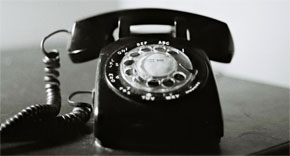 The scammer called the potential victim and claimed to be a member of the Sheriff’s Office, and the calling phone number had been altered so that it appeared on the victim’s caller ID to have originated from the Escambia Sheriff’s Office Administration Building.
The scammer called the potential victim and claimed to be a member of the Sheriff’s Office, and the calling phone number had been altered so that it appeared on the victim’s caller ID to have originated from the Escambia Sheriff’s Office Administration Building.
The caller claimed to be an employee of the Sheriff’s Office and told the recipient that if she did not send $1,000 by electronic payment right away, he would issue a warrant for her arrest for failure to appear for jury duty.The recipient became suspicious and contacted the Sheriff’s Office, which confirmed that the call was not legitimate.
Multiple versions of this telephone scam are being reported, with the caller claiming to be from a law enforcement agency, a utility, or the IRS.
The Sheriff’s Office, in a new release, offered the following tip to prevent becoming a victim of telephone fraud:
- Always be suspicious of any threatening calls claiming to be from the Escambia County Sheriff’s Office or any other business-especially if it is coming from a business that you do not normally patronize.
- A legitimate business will not resort to threats as a first response to a late or missed payment.
- Always be suspicious when asked to send an electronic payment, “Green Dot” or other money card payment, or wire transfer
- Trust your instincts. If you feel that something “just isn’t right, call your local law enforcement agency and report it. It is much easier to prevent fraud in the first place than to recover your money after the fact.
Ernest Ward High Alumni: Final Walk Through Set For Thursday
October 7, 2014
All Ernest Ward High School graduates are invited to a final walk through the old school on Thursday afternoon beginning at 4:15. Participants will meet in the Media Center, mingle and roam the halls — a stroll down memory lane.
Some of the classrooms will be dedicated to the different decades of the school with sight and sounds from the 40s and 50’s, 60’s, 70’s, 80’s, and 90’s. Digital memory books on DVD’s with lots of old pictures will be available. The price is $10 per decade, or $50 for the set.
Participants are invited to attend an Ernest Ward Middle School football game at 6 p.m., with a special reserved section on the 50-yard line, after the walk through event.
The old Ernest Ward Middle School will be demolished early next year as students move into an entirely new facility.
NorthEscambia.com file photo, click to enlarge.
ACLU: Supreme Court Decision Could Boost Gay Marriage In Florida
October 7, 2014
With the U.S. Supreme Court clearing the way for same-sex marriages in other states, gay-rights supporters said Monday they will ask a federal judge to follow suit in Florida.
U.S. District Judge Robert Hinkle in August struck down Florida’s ban on same-sex marriages, but he also placed a stay on the ruling while cases from Virginia, Oklahoma and Utah were pending at the U.S. Supreme Court. Justices declined Monday to hear those cases and similar cases from Indiana and Wisconsin, giving victories to gay-marriage supporters who had won in lower courts.
The American Civil Liberties Union of Florida, which represents plaintiffs in the challenge to Florida’s ban, quickly said it will ask Hinkle to lift the stay on his August decision. In a  prepared statement, ACLU attorney Daniel Tilley said “we are now one step closer to the day when every Florida family can have the respect, protection and responsibilities that come with marriage.”
prepared statement, ACLU attorney Daniel Tilley said “we are now one step closer to the day when every Florida family can have the respect, protection and responsibilities that come with marriage.”
“We are preparing now to take the necessary steps to ask the court in our case to lift the stay and allow Florida couples who are married out of state or who wish to be married to have those marriages respected by their home state as soon as possible,” Tilley said.
Hinkle’s decision finding Florida’s voter-approved ban unconstitutional was similar to rulings by state circuit-court judges in South Florida. Attorney General Pam Bondi, whose office is defending the gay-marriage ban, has pointed to the U.S. Supreme Court’s consideration of cases as a reason to put on hold at least some of the Florida legal battles.
Whitney Ray, a Bondi spokesman, gave little indication Monday how the attorney general might respond to the justices’ decision against hearing the cases.
“We are reviewing the impact of these decisions, as well as other cases around the country,” Ray said in an email.
But John Stemberger, president of the Florida Family Policy Council, which helped lead efforts to pass a 2008 constitutional amendment banning same-sex marriage, disputed arguments that the Supreme Court’s decision resolves the issue in Florida. Stemberger said it “has no legal effect in Florida and is only legally binding in the five states where the appeal was brought.”
“Unless and until a federal appeals court over Florida issues an adverse ruling, then Florida’s current valid marriage laws should continue to be upheld by the attorney general and Florida judges alike,” Stemberger said. “Further, no same-sex marriage licenses should be issued, and any decision otherwise by a Florida court or a clerk of court, would be irresponsible and illegitimate.”
Hinkle, who hears cases in Tallahassee, issued a strongly worded ruling Aug. 21 in favor of plaintiffs in two combined lawsuits challenging the gay-marriage ban. The plaintiffs included Florida couples who were married in other states where same-sex marriage is legal, a couple seeking to get married and the surviving spouse of a same-sex couple married in New York.
But while Hinkle found that the ban interfered with the couples’ constitutional rights, he also issued a stay that at least temporarily blocked same-sex marriages from taking place.
“There is a substantial public interest in implementing this decision just once — in not having, as some states have had, a decision that is on-again, off-again,” Hinkle wrote at the time. “This is so for marriages already entered elsewhere, and it is more clearly so for new marriages. There is a substantial public interest in stable marriage laws.”
In the order, Hinkle tied the length of the stay to the Virginia, Oklahoma and Utah cases, which had been filed in the Supreme Court.
Justices on Monday did not explain the reasons for not hearing those cases. But the decision could have ramifications for other states, along with Florida. In his statement, Tilley, the ACLU attorney, described legal same-sex marriage as a “clear historical inevitability.”
“We said that marriage equality is coming to Florida,” Tilley said. “After today’s message from the nation’s highest court, we know that it is coming even sooner.”
by Jim Saunders and Dara Kim, The News Service of Florida
Paul Martin Upton
October 7, 2014
Mr. Paul Martin Upton, age 26 of Century, passed away suddenly on Sunday, October 5, 2014, at Jay Hospital after a tragic accident.
Mr. Upton was a native of Milton, and a long time resident of the Century community where he was a member and usher of Pilgrim’s Lodge Baptist Church in Century.
He is survived by his mother and step-father, Sandra (Frank)Rich of Pensacola; his father and step-mother, Marty (Sharabeth) Upton of Texas; maternal grandmother, Kate Bondurant of Century; step-grandmother, Beth Rich of Pensacola; brother, John Curtis Upton; step-brother, Chris Rich; nieces, Maria Sears Upton and Asa Sharrif of Orlando; uncle, John G. Upton of Farmers Branch, TX; and numerous relatives and friends.
Visitation will be held on Thursday, October 9, 2014, at the Flomaton Funeral Home Chapel from 6 p.m. until 8 p.m.
Funeral services will be held on Friday, October 10, 2014, at 10 a.m. at the Flomaton Funeral Home Chapel with Rev. Cary Gilbert and Rev. Robert Barrow officiating.
Interment will follow in Pollard Cemetery in Flomaton.
Debate Brews Over Whether Medical Pot Already Legal In Florida
October 7, 2014
A Jacksonville law firm has created a firestorm in the already heated debate about whether Floridians should allow doctors to order medical marijuana for sick patients.
Lawyer Ian Christensen and his colleague Christopher Ralph contend that a constitutional change isn’t necessary because current state law allows severely ill patients to grow and consume their own weed if they meet certain criteria and doctors say they need it.
 But supporters of Amendment 2 say that what’s now available to Florida patients falls far short of the treatment option that would be legalized if voters approve the ballot proposal this fall. Some even accuse Christensen and Ralph, doing business as “Health Law Services,” of running a scam.
But supporters of Amendment 2 say that what’s now available to Florida patients falls far short of the treatment option that would be legalized if voters approve the ballot proposal this fall. Some even accuse Christensen and Ralph, doing business as “Health Law Services,” of running a scam.
The pair has been charging sick Floridians $800 for a “patient identification card” designed to keep them from getting arrested for having dope.
The $800 fee includes $300 Health Law Services pays a doctor to determine whether a patient meets the medical necessity criteria. The rest of the money covers the cost of legal documents, legal services and the ID card, which is not associated with any government agency.
Christensen and Ralph, the group’s legal administrator, are trying to convince sheriffs — who’ve lined up against the proposed constitutional amendment — that Florida law has for decades allowed severely ill patients who meet certain criteria to cultivate and smoke their own pot.
So far, at least one sheriff has agreed not to arrest individuals who can prove they meet the standards.
The dispute is grounded in an appellate court decision upheld by the Florida Supreme Court in 1991 involving a Bay County couple, Kenneth and Barbara Jenks. The decision established a “medical necessity” defense for critically ill patients who use marijuana.
Until recently, just a handful of lawyers were familiar with the Jenks case, and even fewer have used it successfully to keep patients caught with pot from being punished.
But Ralph and Christensen have put the “medical necessity” defense at the forefront of the debate about Amendment 2, which they once strongly supported but now call “a wolf in sheep’s clothing” because, they contend, it would do away with patients’ abilities to cultivate their own pot.
“Right now a sick patient can use marijuana in Florida. They can smoke it if a doctor says they can. They can do whatever they need to do. They can grow it,” Ralph said in a recent interview. “So if we have available medicine, and we have available laws that allow its use and we have a law that allows the patient to grow it and we have a law that allows the physicians to order its use, what are we amending other than creating the commercialization of it?”
Critics accuse Health Law Services of misleading the public.
“It’s so bizarre it’s like up there with aliens arriving and Elvis is still alive,” said John Morgan, the Orlando trial lawyer who has spent more than $3 million of his own money getting the amendment proposal on the November ballot and is traveling around the state debating its merits.
“This is almost like a cult. It’s like Reverend Moon or Jim Jones type stuff. You don’t even know where to begin. But I know this. It’s against the law now. And I know this — if you go and buy some marijuana for your mother with multiple sclerosis, you’re going to jail,” Morgan said.
The “medical necessity” defense was codified decades ago in a case involving the Jenks couple, who used pot to alleviate severe nausea caused by AIDS, which Kenneth contracted from a blood transfusion and then unknowingly passed on to his wife. The 1st District Court of Appeal overturned the couple’s conviction for cultivating marijuana and of possession of drug paraphernalia. The ruling, upheld by the state Supreme Court, laid out three elements that remain the criteria to establish a “medical necessity” defense.
Defendants must prove that they “did not intentionally bring about the circumstance which precipitated the unlawful act,” such as shooting themselves in the foot; that they “could not accomplish the same objective using a less offensive alternative available,” like medication; and “that the evil sought to be avoided was more heinous than the unlawful act perpetrated to avoid it.”
In the Jenks’ case, the “evil” was death. The court agreed with their doctor, who said that the couple would die if they couldn’t smoke pot to alleviate their nausea and enable them to eat.
Lawyers familiar with the Jenks case say it has been used successfully on rare occasions and that its use is left up to the discretion of a prosecutor or judge.
“The fatal flaw in (Health Law Services’) argument is (the medical necessity defense) requires an individual to get arrested and go to jail and be subject to the discretion of a county prosecutor to say they have a legal right to smoke marijuana,” said Norm Kent, a lawyer who successfully used the medical-necessity-defense for the first time in Florida in 1987. “Amendment 2 is absolutely critical to the citizens of the state of Florida because it takes the decision of your use of marijuana out of the hands of an individual prosecutor and places it in the hands of your personal physician.”
Ralph has persuaded at least one sheriff to consider something akin to “pre-clearing” patients who meet the criteria laid out in the Jenks case.
Jacksonville Sheriff John Rutherford, one of the sheriffs publicly fighting against Amendment 2, said he is working with Health Law Services and seeking advice from the state attorney’s office on the matter.
“It’s a legal issue that is still being hammered out. There’s no program. There’s no plan. (Ralph) has shown me his idea of how this could work, if the law is interpreted the way he interprets it but I’m not sure he’s interpreting the law correctly yet. If he’s telling people they can do this and not get arrested, that’s not true,” Rutherford said.
Rutherford also said he does not intend to arrest those “suffering from brain cancer or leukemia” or other debilitating diseases who have legal documents proving that they meet the medical-necessity defense guidelines.
Rep. Katie Edwards is a lawyer who played a key role in pushing through a measure, approved by the Legislature this spring and signed into law by Gov. Rick Scott, that legalized marijuana strains low in euphoria-inducing tetrahydrocannabinol, or THC, and high in cannabadiol, or CBD, for certain patients.
“My concern is for sick patients who are duped into believing that merely filling out some paperwork and paying $800 will get them access to marijuana. I think it’s disingenuous to solicit clients with a patient ID card and other services that are simply not available without first being arrested and then going through the court system and then having the court address the medical-necessity defense,” Edwards, D-Plantation, said.
Ralph, who is not a lawyer, said hundreds of people in Florida already meet the medical-defense requirements and are therefore legally allowed to grow and smoke their own marijuana.
Ralph and Christensen are basing their position on a complex interpretation of state and federal law, a Department of Health rule concerning doctors and Florida Supreme Court instructions regarding the medical-necessity defense. They say that, based on Florida law, patients have an absolute right — not merely an affirmative defense — to grow their own pot and even purchase it from someone else.
Law enforcement can’t punish patients for following doctors’ orders, Ralph said.
“If you’re driving down the road and you’re not wearing a seat belt, you’re going to get a ticket. That is unlawful behavior. But if you get pulled over without a seat belt, and you hand the police officer the information from the doctor that says you can’t wear one, then you can’t wear one. They’re not going to give you a ticket. … You are exempt from anything if a doctor orders it,” he said.
Most other medical-marijuana law experts disagree.
“In my opinion, (Ralph) and his organization are a fraud. That $800 won’t buy you the bail money to get out of jail when you get locked up by a cop who will laugh and scoff at it. It’s a scam,” said Kent, who is also the national president of the National Organization for the Reform of Marijuana Laws, or NORML.
Ralph points to an inter-agency memorandum issued by the state attorney’s office in Manatee County dealing with Bob Jordan, whose wife Cathy has used marijuana for more than a decade to treat ALS and is an outspoken advocate of medical marijuana. Deputies raided the couple’s home last year and confiscated marijuana plants. But prosecutors decided not to charge the Jordans after Kent, their lawyer, convinced them Cathy needed the pot to treat her disease.
“The state lacks a good-faith belief it can overcome a medical-necessity defense in this matter,” the memo, sent to the Manatee County sheriff, reads.
Ralph has aggressively courted the Florida Sheriffs Association, trying to convince the group to endorse something similar to the Manatee County memo for individuals like Health Law Services’ clients.
“All we need to do is sit down and talk about this. We’re not changing the view from the public’s perspective. We’re changing the view from law enforcement’s perspective. They’re the people who matter. They’re the ones with the badges. Nobody gets arrested by the state attorney,” he said.
But Steve Casey, executive director of the sheriffs association, said the medical-necessity case law only applies in very rare cases.
“I am not aware of any sheriff’s office (or other law enforcement agency for that matter) that has adopted a policy to not enforce the marijuana laws in our state. … Medical necessity is a legal term, which is defined by statute and case law, and while it is possible that someone charged with possession of marijuana could raise this defense in court, this would be after the arrest/seizure has taken place, not before,” Casey said in an e-mail. “The existence of this case law certainly does not invalidate any state and federals laws on the books.”
The Jordans recently took to the web to complain about Health Law Services’ use of their case to promote the law firm and its anti-Amendment 2 stance.
It took 15 years for the courts to recognize his wife’s need for marijuana, Bob Jordan said.
“What they’re saying now is they found some kind of loophole that nobody else has ever found,” he said in a telephone interview. “I think they’re going to hurt a lot of people. I really, really do.”
Jordan and others accuse Health Law Services of opposing Amendment 2 because it would cut into the firm’s practice.
But Ralph said his firm will soon drop its $400 portion of the fee and can’t keep up with the number of clients seeking help.
But he insisted Health Law Services is trying to get law enforcement officials to sign off on the idea that medical marijuana is already legal so he and his partner won’t have to fight for the rights of sick patients to use pot.
“We’re not being paid to do this. There’s no revenue coming to us that benefits us by getting this information out. Nothing. In fact, we’re putting ourselves out of business,” he said.
-END-
10/6/14
Involved, invested, or interested in Florida politics? Buy your copy of the Political Almanac of Florida 2014 by Dave Royse today!
Independent and Indispensable
http://www.newsserviceflorida.com
The News Service of Florida
3:19 PM (30 minutes ago)
to
Images are not displayed. Display images below – Always display images from info2@newsserviceflorida.com
DEBATE BREWS OVER WHETHER MEDICAL POT ALREADY LEGAL
(Subscribers: Re-sending to correct reference to Supreme Court decision and Kent’s position with NORML)
By DARA KAM
THE NEWS SERVICE OF FLORIDA
Posting or forwarding this material without permission is prohibited. Contact news@newsserviceflorida.com.
THE CAPITAL, TALLAHASSEE, October 6, 2014……..A Jacksonville law firm has created a firestorm in the already heated debate about whether Floridians should allow doctors to order medical marijuana for sick patients.
Lawyer Ian Christensen and his colleague Christopher Ralph contend that a constitutional change isn’t necessary because current state law allows severely ill patients to grow and consume their own weed if they meet certain criteria and doctors say they need it.
But supporters of Amendment 2 say that what’s now available to Florida patients falls far short of the treatment option that would be legalized if voters approve the ballot proposal this fall. Some even accuse Christensen and Ralph, doing business as “Health Law Services,” of running a scam.
The pair has been charging sick Floridians $800 for a “patient identification card” designed to keep them from getting arrested for having dope.
The $800 fee includes $300 Health Law Services pays a doctor to determine whether a patient meets the medical necessity criteria. The rest of the money covers the cost of legal documents, legal services and the ID card, which is not associated with any government agency.
Christensen and Ralph, the group’s legal administrator, are trying to convince sheriffs — who’ve lined up against the proposed constitutional amendment — that Florida law has for decades allowed severely ill patients who meet certain criteria to cultivate and smoke their own pot.
So far, at least one sheriff has agreed not to arrest individuals who can prove they meet the standards.
The dispute is grounded in an appellate court decision upheld by the Florida Supreme Court in 1991 involving a Bay County couple, Kenneth and Barbara Jenks. The decision established a “medical necessity” defense for critically ill patients who use marijuana.
Until recently, just a handful of lawyers were familiar with the Jenks case, and even fewer have used it successfully to keep patients caught with pot from being punished.
But Ralph and Christensen have put the “medical necessity” defense at the forefront of the debate about Amendment 2, which they once strongly supported but now call “a wolf in sheep’s clothing” because, they contend, it would do away with patients’ abilities to cultivate their own pot.
“Right now a sick patient can use marijuana in Florida. They can smoke it if a doctor says they can. They can do whatever they need to do. They can grow it,” Ralph said in a recent interview. “So if we have available medicine, and we have available laws that allow its use and we have a law that allows the patient to grow it and we have a law that allows the physicians to order its use, what are we amending other than creating the commercialization of it?”
Critics accuse Health Law Services of misleading the public.
“It’s so bizarre it’s like up there with aliens arriving and Elvis is still alive,” said John Morgan, the Orlando trial lawyer who has spent more than $3 million of his own money getting the amendment proposal on the November ballot and is traveling around the state debating its merits.
“This is almost like a cult. It’s like Reverend Moon or Jim Jones type stuff. You don’t even know where to begin. But I know this. It’s against the law now. And I know this — if you go and buy some marijuana for your mother with multiple sclerosis, you’re going to jail,” Morgan said.
The “medical necessity” defense was codified decades ago in a case involving the Jenks couple, who used pot to alleviate severe nausea caused by AIDS, which Kenneth contracted from a blood transfusion and then unknowingly passed on to his wife. The 1st District Court of Appeal overturned the couple’s conviction for cultivating marijuana and of possession of drug paraphernalia. The ruling laid out three elements that remain the criteria to establish a “medical necessity” defense. The Florida Supreme Court later upheld the medical-necessity defense in a separate case.
Defendants must prove that they “did not intentionally bring about the circumstance which precipitated the unlawful act,” such as shooting themselves in the foot; that they “could not accomplish the same objective using a less offensive alternative available,” like medication; and “that the evil sought to be avoided was more heinous than the unlawful act perpetrated to avoid it.”
In the Jenks’ case, the “evil” was death. The court agreed with their doctor, who said that the couple would die if they couldn’t smoke pot to alleviate their nausea and enable them to eat.
Lawyers familiar with the Jenks case say it has been used successfully on rare occasions and that its use is left up to the discretion of a prosecutor or judge.
“The fatal flaw in (Health Law Services’) argument is (the medical necessity defense) requires an individual to get arrested and go to jail and be subject to the discretion of a county prosecutor to say they have a legal right to smoke marijuana,” said Norm Kent, a lawyer who successfully used the medical-necessity-defense for the first time in Florida in 1987. “Amendment 2 is absolutely critical to the citizens of the state of Florida because it takes the decision of your use of marijuana out of the hands of an individual prosecutor and places it in the hands of your personal physician.”
Ralph has persuaded at least one sheriff to consider something akin to “pre-clearing” patients who meet the criteria laid out in the Jenks case.
Jacksonville Sheriff John Rutherford, one of the sheriffs publicly fighting against Amendment 2, said he is working with Health Law Services and seeking advice from the state attorney’s office on the matter.
“It’s a legal issue that is still being hammered out. There’s no program. There’s no plan. (Ralph) has shown me his idea of how this could work, if the law is interpreted the way he interprets it but I’m not sure he’s interpreting the law correctly yet. If he’s telling people they can do this and not get arrested, that’s not true,” Rutherford said.
Rutherford also said he does not intend to arrest those “suffering from brain cancer or leukemia” or other debilitating diseases who have legal documents proving that they meet the medical-necessity defense guidelines.
Rep. Katie Edwards is a lawyer who played a key role in pushing through a measure, approved by the Legislature this spring and signed into law by Gov. Rick Scott, that legalized marijuana strains low in euphoria-inducing tetrahydrocannabinol, or THC, and high in cannabadiol, or CBD, for certain patients.
“My concern is for sick patients who are duped into believing that merely filling out some paperwork and paying $800 will get them access to marijuana. I think it’s disingenuous to solicit clients with a patient ID card and other services that are simply not available without first being arrested and then going through the court system and then having the court address the medical-necessity defense,” Edwards, D-Plantation, said.
Ralph, who is not a lawyer, said hundreds of people in Florida already meet the medical-defense requirements and are therefore legally allowed to grow and smoke their own marijuana.
Ralph and Christensen are basing their position on a complex interpretation of state and federal law, a Department of Health rule concerning doctors and Florida Supreme Court instructions regarding the medical-necessity defense. They say that, based on Florida law, patients have an absolute right — not merely an affirmative defense — to grow their own pot and even purchase it from someone else.
Law enforcement can’t punish patients for following doctors’ orders, Ralph said.
“If you’re driving down the road and you’re not wearing a seat belt, you’re going to get a ticket. That is unlawful behavior. But if you get pulled over without a seat belt, and you hand the police officer the information from the doctor that says you can’t wear one, then you can’t wear one. They’re not going to give you a ticket. … You are exempt from anything if a doctor orders it,” he said.
Most other medical-marijuana law experts disagree.
“In my opinion, (Ralph) and his organization are a fraud. That $800 won’t buy you the bail money to get out of jail when you get locked up by a cop who will laugh and scoff at it. It’s a scam,” said Kent, who is past president of the National Organization for the Reform of Marijuana Laws, or NORML.
Ralph points to an inter-agency memorandum issued by the state attorney’s office in Manatee County dealing with Bob Jordan, whose wife Cathy has used marijuana for more than a decade to treat ALS and is an outspoken advocate of medical marijuana. Deputies raided the couple’s home last year and confiscated marijuana plants. But prosecutors decided not to charge the Jordans after Kent, their lawyer, convinced them Cathy needed the pot to treat her disease.
“The state lacks a good-faith belief it can overcome a medical-necessity defense in this matter,” the memo, sent to the Manatee County sheriff, reads.
Ralph has aggressively courted the Florida Sheriffs Association, trying to convince the group to endorse something similar to the Manatee County memo for individuals like Health Law Services’ clients.
“All we need to do is sit down and talk about this. We’re not changing the view from the public’s perspective. We’re changing the view from law enforcement’s perspective. They’re the people who matter. They’re the ones with the badges. Nobody gets arrested by the state attorney,” he said.
But Steve Casey, executive director of the sheriffs association, said the medical-necessity case law only applies in very rare cases.
“I am not aware of any sheriff’s office (or other law enforcement agency for that matter) that has adopted a policy to not enforce the marijuana laws in our state. … Medical necessity is a legal term, which is defined by statute and case law, and while it is possible that someone charged with possession of marijuana could raise this defense in court, this would be after the arrest/seizure has taken place, not before,” Casey said in an e-mail. “The existence of this case law certainly does not invalidate any state and federals laws on the books.”
The Jordans recently took to the web to complain about Health Law Services’ use of their case to promote the law firm and its anti-Amendment 2 stance.
It took 15 years for the courts to recognize his wife’s need for marijuana, Bob Jordan said.
“What they’re saying now is they found some kind of loophole that nobody else has ever found,” he said in a telephone interview. “I think they’re going to hurt a lot of people. I really, really do.”
Jordan and others accuse Health Law Services of opposing Amendment 2 because it would cut into the firm’s practice.
But Ralph said his firm will soon drop its $400 portion of the fee and can’t keep up with the number of clients seeking help.
But he insisted Health Law Services is trying to get law enforcement officials to sign off on the idea that medical marijuana is already legal so he and his partner won’t have to fight for the rights of sick patients to use pot.
“We’re not being paid to do this. There’s no revenue coming to us that benefits us by getting this information out. Nothing. In fact, we’re putting ourselves out of business,” he said.


